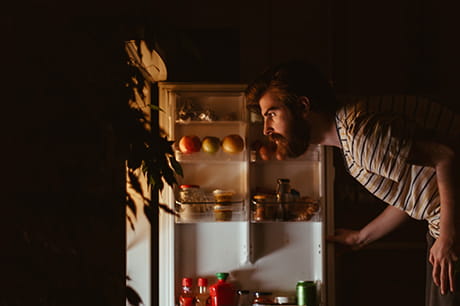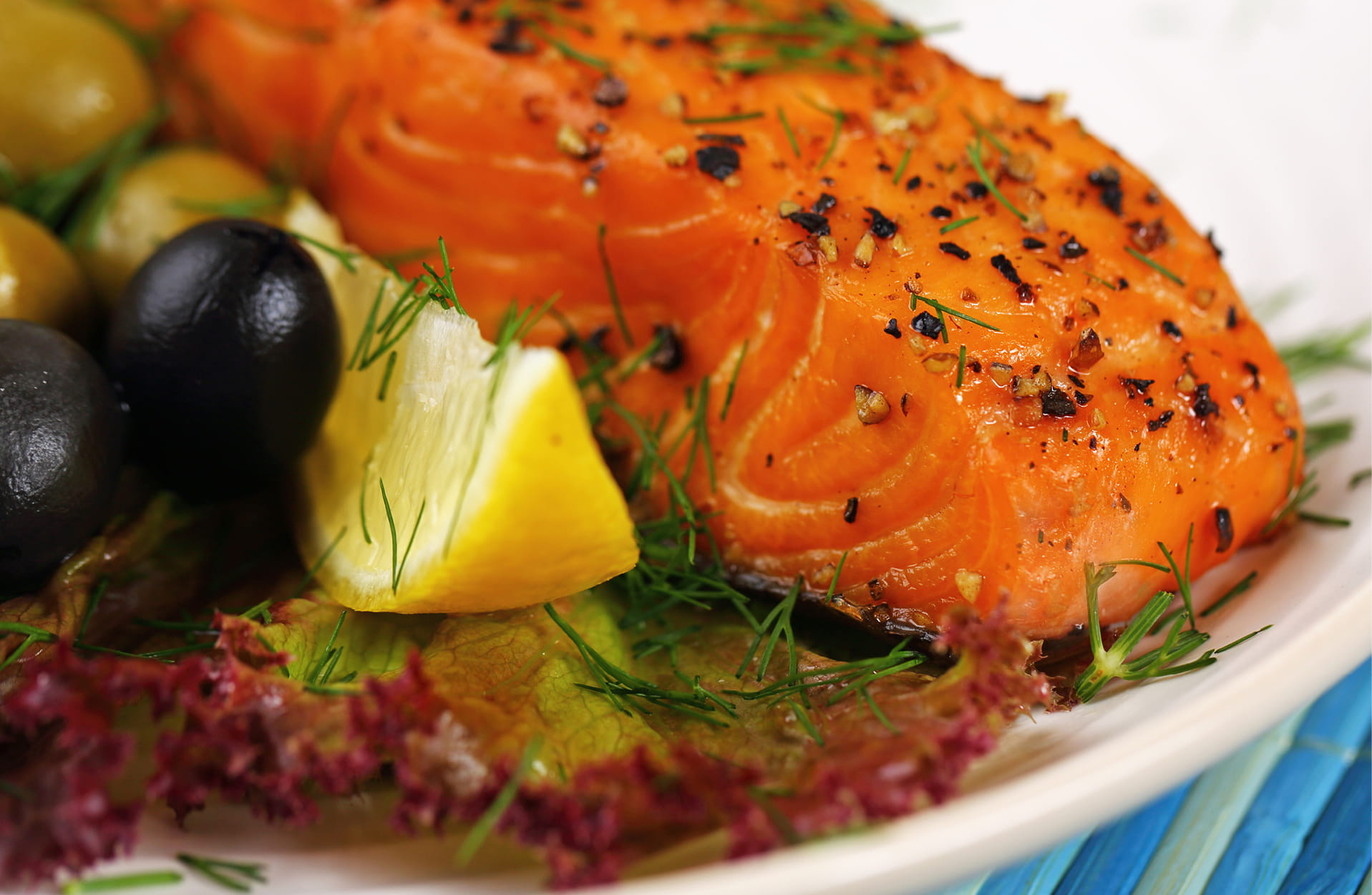Does eating late at night cause weight gain?
Sometimes we all need a midnight snack. But does eating late at night cause more harm than good?
Nighttime noshing while binge watching your favorite show isn't a crime. But does eating before bed make you gain weight?
"Eating before bed is misunderstood. Some believe your body stops burning calories when you go to sleep. Your body actually burns calories 24/7," says Katie Dumm, senior health services specialist for Geisinger Health Plan.
Still, debate continues about whether you gain weight by eating that after-dinner snack.
A study published in the International Journal of Obesity showed that people who eat late at night have a higher body mass index (BMI). But many experts turn to conventional wisdom to settle the debate: A calorie is a calorie. Your weight gain depends on how many calories you eat in a day and how many you burn through exercise.
Eating before bed: What vs. when
The research is muddy on whether nighttime snacking causes weight gain. But experts agree that what you're eating, and what you're doing while eating, are key.
Munching on a bottomless bag of potato chips while watching a movie? Chances are you're going to eat too much.
Consider the nutritional content of that chip: It's mostly oil (fat), loaded with salt and devoid of any fiber. That means it tastes good but won't fill you up unless you eat a lot of them.
Practice moderation with those calorie-dense, high-fat and high-sugar snacks by measuring out a serving. And savor those flavors by focusing on what you're eating in the moment.
"Mindful eating is about being present while enjoying your food," says Ms. Dumm. "Focus on your senses, how you feel when eating and your body's fullness cues."
Healthy late-night eating
If you ate a few hours ago and you’re used to eating a snack before going to sleep, first ask yourself if you’re really hungry. Some people fall into a routine where they nosh while watching TV, regardless of whether they need to eat.
Before you reach for the chips and dip, drink a glass of water. Even mild dehydration symptoms can mimic those of hunger.
If your stomach is still rumbling, a small after-dinner bite can satisfy while keeping your daily calories in check. This can also prevent acid reflux and indigestion that come with snacking at night.
What’s the key to healthy late-night eating? Combining protein, a healthy fat and fiber can keep you fuller longer.
- Dip made with Greek yogurt with a side of veggies
- Apple slices with a tablespoon of peanut butter or 1 ounce of cheese
- Fruit and yogurt, like this healthy banana split recipe
- A small handful of mixed nuts, or your own spiced version
- A cup or two of popcorn — find ways to jazz up your kernels here
"It’s easy to overdo it later at night," adds Ms. Dumm. "Paying better attention to the kinds of foods you eat at night and being present while eating can make a big difference."
Next steps:
What is food shaming — and how to shake it off
5 ‘untrendy’ foods you should be eating
When is it time for a break from social media?





